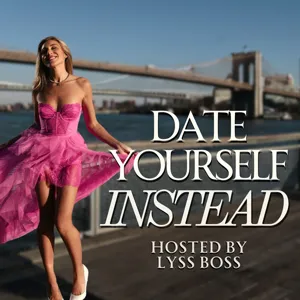Podcast Summary
Understanding the bond between a child and their caregiver: Attachment theory explains how consistent caregiver responses during distress shape a child's self-perception and view of relationships, impacting their ability to build healthy bonds throughout life.
Attachment theory is a crucial understanding of the bond between a child and their primary caregiver, developed by John Bowlby in the 1940s. This theory explains how consistent responses from caregivers during times of distress create an attachment bond, shaping a child's self-perception and view of relationships. Secure attachment, the most common style, is characterized by trust and a belief that relationships are worthwhile. In contrast, insecure attachment can lead to negative self-perception and mistrust of others. The attachment style foundation formed in the first 3 years of life impacts relationship-building throughout life. Infants and toddlers with secure attachment feel they can trust their caregiver and are more willing to explore, while insecure attachment can manifest in anxiety or avoidance. Understanding attachment theory can help us foster healthier relationships, starting from childhood.
Childhood attachment styles shape adult relationships: Secure attachment allows for healthy independence and intimacy, while anxious-avoidant attachment hinders trust and relationship maintenance due to fear.
Attachment styles developed in childhood can influence how adults form and maintain relationships. Securely attached individuals, who have low anxiety and low avoidance, are comfortable with both independence and intimacy. However, there are insecure attachment styles as well. One is anxious-avoidant, where individuals have high anxiety and high avoidance, making it difficult for them to trust others and maintain relationships due to fear. Understanding these attachment styles can help us appreciate the complexity of interpersonal relationships and the impact of early experiences on adult behaviors.
Impact of Attachment Styles on Relationships: Fearful avoidant individuals have negative self-views and mistrust others, anxious preoccupied individuals have high anxiety and a strong desire for closeness, and dismissive individuals have high self-esteem and view others negatively, impacting relationship dynamics and self-worth.
Attachment styles, which include fearful avoidant, anxious preoccupied, and dismissive, significantly impact how individuals perceive themselves and others in relationships. Fearful avoidant individuals have negative self-views and mistrust others, leading to stress and fear in relationships. Anxious preoccupied individuals, on the other hand, have high anxiety and a strong desire for closeness, often trying to quickly establish deep connections due to low self-worth. Lastly, dismissive individuals have high self-esteem and view others negatively, keeping relationships superficial or avoiding them altogether. Understanding these attachment styles and their implications can lead to healthier and more fulfilling relationships.
Understanding attachment styles in relationships: Attachment styles develop in childhood and shape how we view ourselves and others in romantic relationships. Self-reflection can help identify these styles and improve communication and understanding in partnerships.
Our attachment styles, which develop in childhood based on our relationships with primary caregivers, shape how we view ourselves and other people in romantic relationships. Some people may avoid serious conversations or struggle with integrating their partner's needs due to fear or selfishness. Others may cling or become anxious and preoccupied. It's essential to understand that these attachment styles exist on a spectrum, and we may exhibit different behaviors in various relationships. To self-diagnose, consider how you view yourself and other people. Do you believe people have good intentions, or do you mistrust them? Reflecting on these questions can help you identify your attachment style and better understand your strengths and weaknesses in relationships. Remember, we're all complex individuals, and our attachment styles are just one aspect of who we are.
Forming Attachments Throughout Life: From infancy to adulthood, our relationships and attachments evolve, influenced by past experiences and opportunities for growth. Parents play a crucial role in creating secure bonds, but healing from past traumas and attachment issues can also strengthen future relationships.
Our attachments and relationships with different individuals can vary in strength and security throughout our lives, starting from infancy. While we can form secure attachments with multiple caregivers during infancy, our mental frameworks are influenced by patterns of behavior. Parents should strive to respond sensitively and lovingly to their children as much as possible, but it's natural to make mistakes occasionally. Healing from past traumas or attachment issues before having children can help create more secure bonds. There's a push-pull between repeating past problems and opportunities for healing. As we grow older, we can form new attachment figures, such as teachers, friends' parents, uncles, or romantic partners. Our primary attachment figures shift as we age, providing opportunities for growth and healing. However, during our infancy and most of childhood, we're largely dependent on those around us and have limited choices in attachment figures.
Childhood experiences shape attachment styles: Seek resources, prioritize self-care, and remain open to growth to overcome past attachment patterns
Childhood experiences play a significant role in shaping our attachment styles, which can impact our relationships and overall emotional well-being in adulthood. However, it's important to note that these patterns are not set in stone, and personal growth is possible. The discussion highlighted the importance of seeking resources, such as the Doctor John DeLaney show and the ZOE Science and Nutrition podcast, to gain knowledge and practical advice on navigating emotional challenges. Additionally, simple and effective solutions, like OneSkin's OS o one peptide, can help individuals prioritize their self-care and improve their confidence, allowing them to focus on their personal growth. Overall, the conversation emphasized the importance of acknowledging the past while remaining open to new experiences and opportunities for growth.
Attachment styles in relationships: Successful relationships are built between two securely attached individuals. Anxious and avoidant styles can work, but require understanding and effort. An avoidant person with an anxious one is least compatible due to opposing needs.
The compatibility of adult romantic relationships largely depends on the attachment styles of the individuals involved. The most successful relationships are formed between two securely attached individuals. However, even if one person is insecure, the relationship can still be healthy and happy as long as the secure person is able to provide emotional stability and bonding experiences. Anxious and avoidant attachment styles can also form a relationship, but it requires a deep understanding of each other's anxiety and a willingness to reassure and spend time together. The least compatible pairing is an avoidant person with an anxious person, as their opposing needs for independence and reassurance can lead to conflict and an unhealthy dynamic. Ultimately, the key to a successful relationship lies in the ability to provide a sense of safety and security for the anxious partner.
Explore attachment styles for relationship growth: Understanding your attachment style and addressing related issues can enhance relationships. Reflect, seek help, and make intentional efforts to improve communication and empathy.
Understanding attachment styles and addressing personal issues related to them can significantly improve relationships. To begin, educate yourself about various attachment styles, including dismissive, fearful, secure, and anxious. Reflect on your own tendencies and seek professional help if needed. For dismissive attachment, make intentional efforts to carve out quality time for your partner and communicate openly about your feelings. By understanding the reasons behind your behaviors and your partner's, you can increase empathy and strengthen your connection.
Recognizing attachment styles and childhood experiences: Understanding attachment styles and childhood influences can lead to more empathetic communication and stronger relationships.
Understanding attachment styles and the underlying causes of relationship patterns can help us approach conflicts with more empathy and gentleness. Anger and conflict can often arise when we assume our partner's reluctance to discuss certain topics stems from a lack of seriousness or compatibility, but this may not always be the case. By recognizing that people's relational styles are influenced by their childhood experiences and attachment styles, we can be more compassionate and open to healing the wounds that shape our interactions. Moreover, effective communication in healthy relationships involves trust, security, and empathy. Securely attached individuals do not question their partner's love or use it as a manipulative tool, and they do not engage in distrustful or controlling communication. By focusing on forming secure bonds and healing childhood wounds, we can foster healthier, more functional relationships.
Childhood attachment styles impact adulthood relationships: Secure attachment fosters healthy communication and connections, while insecure attachment can hinder these skills.
Attachment styles formed during childhood can significantly impact communication skills and relationships in adulthood. Securely attached individuals are more willing to communicate, express emotions, and form connections, while insecurely attached individuals may struggle with these things. This can manifest in various ways, from shyness and unwillingness to start relationships to hesitance to share feelings or opinions in existing relationships. It's important to remember that attachment styles affect all interpersonal relationships, not just romantic ones. If given the opportunity to go back in time, Dr. Jenny Rozier would encourage her younger self to remember that everything will work out in the end, even if it may be difficult during adolescence. Effective communication and healthy relationships are possible, regardless of one's attachment style.
Understanding attachment styles in relationships: Securely attached individuals foster healthy relationships, while anxious and dismissive styles can cause challenges. Learn to work with these styles or seek resources for improved relationships or avoid problematic pairings.
Understanding attachment styles in relationships can greatly impact their success. Securely attached individuals, who have a positive view of themselves and others, tend to have healthy relationships. However, relationships between two anxious or dismissive individuals can be challenging. Anxious people are clingy, while dismissive individuals prefer distance. Learning how to work with these styles or seeking resources can help improve relationships or even avoid problematic pairings. Dr. Rozier offers resources online for working with attachment styles. Additionally, Rick's new program, "Just One Minute," offers 57 bite-sized practices for improving your life, including practices for seeing the good in yourself and feeling safer. Use the code "beingwell" for a 10% discount. Remember, leaving a comment, review, or subscription is a great way to support the podcast.






